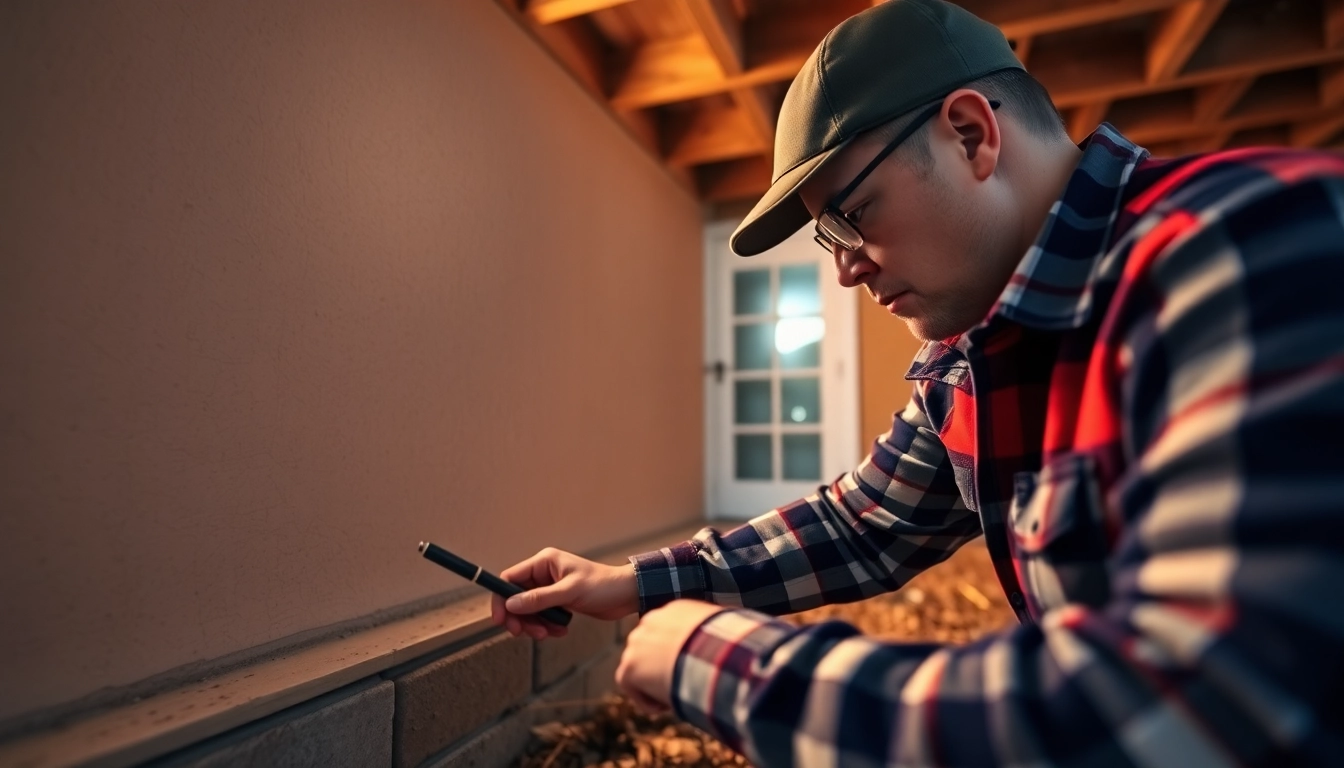
Understanding Home Inspections
What are Home Inspections?
Home inspections are comprehensive evaluations of a property’s condition, conducted by trained professionals known as home inspectors. These inspections usually occur before the purchase of a home, ensuring that potential buyers are informed about any issues that may affect their investment. The process typically includes a thorough examination of the house’s major systems, structure, and components, including the roof, plumbing, electrical systems, HVAC, and more, highlighting any deficiencies or needed repairs.
Importance of Home Inspections for Buyers
For homebuyers, a home inspection serves as a critical step in the purchasing process. It provides a detailed understanding of the property’s condition, which can influence the final decision on a purchase. According to the National Association of Realtors (NAR), 85% of buyers find the inspection to be a vital part of the buying journey. Not only does it protect buyers from unforeseen costs after purchase, but it also gives them leverage in negotiations with sellers for repairs or price reductions.
Common Areas Inspected by Auburn Home Inspectors
Auburn home inspectors focus on a variety of areas during their evaluations. Commonly inspected areas include:
- Roofing: Inspectors check for damage, leaks, and the overall condition of the roofing materials.
- Plumbing: Evaluation of pipes, fixtures, and water supply lines to check for leaks, corrosion, or blockages.
- Electrical Systems: Review of wiring, outlets, and service panels to ensure everything meets safety standards.
- Foundation: Inspectors look for cracks, settling, or other structural issues that may indicate deeper problems.
- HVAC Systems: Assessment of heating and cooling systems to ensure they are functional and efficient.
Choosing the Best Auburn Home Inspectors
Qualities of a Reliable Home Inspector
Choosing the right home inspector is crucial for a successful inspection. Some key qualities to look for include:
- Certification and License: Ensure that the inspector is appropriately certified and licensed by relevant authorities.
- Experience: Experience in the field can indicate a deeper understanding of potential home issues.
- Reputation: Look for inspectors with positive reviews and recommendations from former clients.
- Thoroughness: A reliable inspector will leave no stone unturned and provide a detailed report.
- Communication Skills: Effective communicators can explain their findings in simple terms.
Questions to Ask Potential Inspectors
When interviewing potential home inspectors, ask the following questions to gauge their expertise and reliability:
- What is your inspection process and what does it include?
- Can you provide references from previous clients?
- How long does the inspection typically take?
- What is your policy on follow-ups or additional questions after the report is delivered?
- Do you have liability insurance?
Checking Certifications and Reviews
Before making a final choice, verify the inspector’s credentials and look for reviews online. Sites like Best Auburn home inspectors and Angie’s List can provide valuable insights into an inspector’s reputation. Ensure they are members of recognized professional organizations like the American Society of Home Inspectors (ASHI) or the International Association of Certified Home Inspectors (InterNACHI).
The Home Inspection Process
What to Expect During an Inspection
The home inspection process usually involves both the inspector and the buyer. The inspector will come to the property and conduct a visual inspection, usually lasting about two to three hours, depending on the size of the home. Buyers are encouraged to attend the inspection, allowing them to ask questions and gain insight into the property’s condition.
Preparing Your Home for Inspection
If you are selling your home, it’s beneficial to prepare for the inspection by addressing minor repairs ahead of time. Ensure that:
- Access to basements, attics, and crawl spaces is clear.
- Utilities are turned on and functioning.
- The home is clean and well-organized to facilitate a thorough inspection.
Understanding the Inspection Report
After the inspection, buyers will receive a detailed report outlining the inspector’s findings, which typically includes a summary, photographs, and recommendations for repairs. Understanding this report is crucial as it will help buyers assess the condition of the home and make informed decisions on negotiating repairs or adjustments with the seller.
Local Insights: Auburn and Surrounding Areas
Unique Challenges in Auburn Home Inspections
Auburn’s unique climate and local building practices mean that home inspections may come with specific challenges. For example, homes in areas prone to humidity may experience mold issues. Moreover, houses with basements might have waterproofing needs due to heavy rains common in this region.
How Local Regulations Impact Inspections
Understanding local building codes and regulations is vital for home inspectors in Auburn. Local laws may influence what inspectors focus on, including requirements for electrical systems or plumbing. Buyers should be aware of how these regulations may affect the inspection process and the final inspection report.
Recommendations for Local Service Providers
Alongside your home inspector, consider consulting with local service providers, such as plumbers, electricians, and roofers, once the inspection is complete. They can help navigate necessary repairs and are often familiar with the specific issues common in the Auburn area.
Post-Inspection Steps
Addressing Issues Found in the Inspection
Once the inspection report is received, the next step is addressing any identified issues. Buyers can negotiate with the seller based on the report findings to either repair issues before closing or provide credits to help cover repair costs post-purchase.
The Role of Home Inspectors After Inspection
A good home inspector will remain available for questions after the inspection. They often provide valuable follow-up advice and may recommend trusted contractors to perform any necessary repairs they identified during the evaluation.
Evaluating Your Purchase Decision
Ultimately, the inspection report should significantly influence your purchase decision. Buyers should weigh the potential costs of repairs against the home’s overall value and their long-term financing plans. In some cases, it may be prudent to walk away from a property with too many critical issues.





